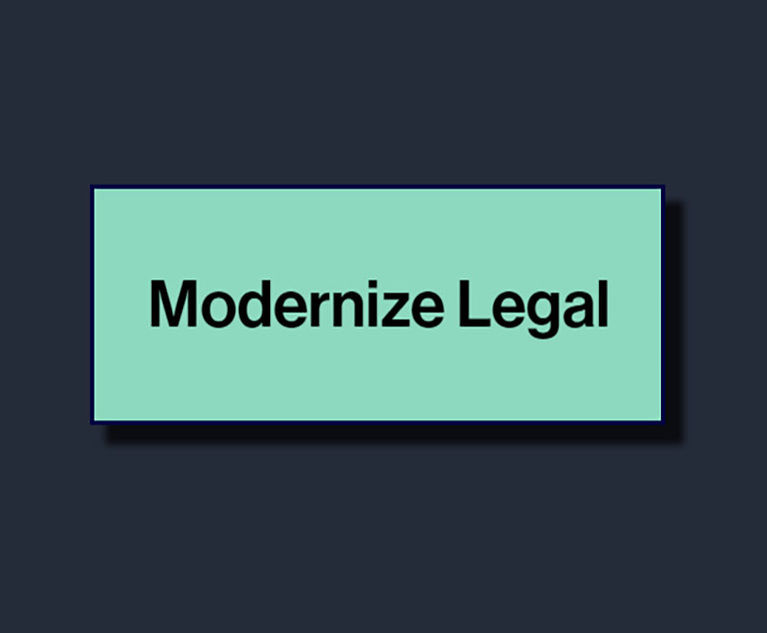Stephanie Wilkins
Stephanie Wilkins is the Editor-in-Chief of Legaltech News at ALM. She has spent the better part of the past decade following the evolution of legal tech and learning how it can help in-house counsel, law firms and others in the legal industry. As a former practicing litigator, she is particularly interested in how legal tech can and should be used in real-life practice and the valuable differences it can make. Stephanie is also keenly interested in shining a light on the ways legal tech is being used to help the greater good.

March 18, 2024 | Legaltech News
Women of Legal Tech: 'Every Failure Is an Opportunity,' Says Kirkland's Valerie PennacchioValerie Pennacchio, Practice Innovation Advisor at Kirkland & Ellis, discusses the role mentorship plays in combatting sexism in the workplace, the surprising amount of candor around legal technology among peer law firms, and how she came to realize that her current job is the table she wants to be at.
By Alma Asay
8 minute read

March 18, 2024 | Legaltech News
AI in Law: Navigating the Tightrope Between Innovation and EthicsBy remaining vigilant about potential risks, adhering to established best practices, and continually applying independent judgment, lawyers can effectively harness AI's capabilities while responsibly managing associated liabilities.
By Joshua Lenon, Clio
8 minute read

March 11, 2024 | Legaltech News
Innovating Knowledge Management Winner, Provider: eDiscovery Assistant"Legal innovation will require all of us to think outside the box. When brilliant legal minds collaborate, we all benefit," said Kelly Twigger, CEO and Founder at eDiscovery Assistant.
By Stephanie Wilkins
8 minute read

March 11, 2024 | Legaltech News
New Tech Initiative Seeks to 'Modernize Legal' by Fixing Broken Law Firm Feedback LoopsThe Modernize Legal project presents "a Rubik's Cube of surveys" to simultaneously get the pulse of all sides of law firm innovation from associates, law firm leaders, practice technologists and legal tech providers.
By Stephanie Wilkins
6 minute read

March 08, 2024 | Law.com
How Tech Is Helping Fuel the Rise of the Mid-MarketThe fact that the mid-market is increasingly turning heads can be attributed to a wide range of factors. A number of them, though, can be traced back—directly or indirectly—to technology.
By Stephanie Wilkins
7 minute read

March 07, 2024 | Legaltech News
Litigation Technology Winner, Provider: UnitedLex"Band-aid solutions may get companies through a short-term crisis, but they rarely stand the test of time and certainly don't reshape the industry in meaningful ways," said Aaron Crews, Chief Product & Innovation Officer at UnitedLex.
By Stephanie Wilkins
6 minute read

March 07, 2024 | Legaltech News
Dissecting the Tech Gap: What Legal Can Learn From Medicine's Leap Into the FutureAs technology advances and becomes cheaper and easier to implement, the legal profession will find ways to integrate tools that make sense, and legal operations will be the catalyst to make it so.
By Stephanie Corey, CEO/Founder, UpLevel Ops
6 minute read

March 06, 2024 | Legaltech News
Law Firms and ALSPs Share the Same DestinyChances are that in 10 years, law firms and alternative legal service providers are going to converge under a technological strategy that ALSPs are already leveraging.
By Kenzo Tsushima, Rico Burnett & David Malkinson, Morae
13 minute read

March 05, 2024 | Legaltech News
Inside DechertMind, a Proprietary Suite of Gen AI Tools for Law Firm WorkThor Alden, associate director of innovation at Dechert, recently gave Legaltech News an inside look at the suite of homegrown generative artificial intelligence tools the firm has been internally rolling out since April 2023.
By Stephanie Wilkins
10 minute read

March 05, 2024 | Legaltech News
Innovators of the Year (Individual), Provider: Jake Heller & Pablo Arredondo, Casetext"We knew we had one shot. And that if we didn't do it, no one would, not this quickly," said Pablo Arredondo, Chief Innovation Officer and Co-Founder of Casetext, now part of Thomson Reuters.
By Stephanie Wilkins
8 minute read
Trending Stories
- 1Judge Denies Sean Combs Third Bail Bid, Citing Community Safety
- 2Republican FTC Commissioner: 'The Time for Rulemaking by the Biden-Harris FTC Is Over'
- 3NY Appellate Panel Cites Student's Disciplinary History While Sending Negligence Claim Against School District to Trial
- 4A Meta DIG and Its Nvidia Implications
- 5Deception or Coercion? California Supreme Court Grants Review in Jailhouse Confession Case
More from ALM
- Legal Speak at General Counsel Conference East 2024: Match Group's Katie Dugan & Herrick's Carol Goodman 1 minute read
- Legal Speak at General Counsel Conference East 2024: Eric Wall, Executive VP, Syllo 1 minute read
- Legal Speak at General Counsel Conference East 2024: Virginia Griffith, Director of Business Development at OutsideGC 1 minute read



